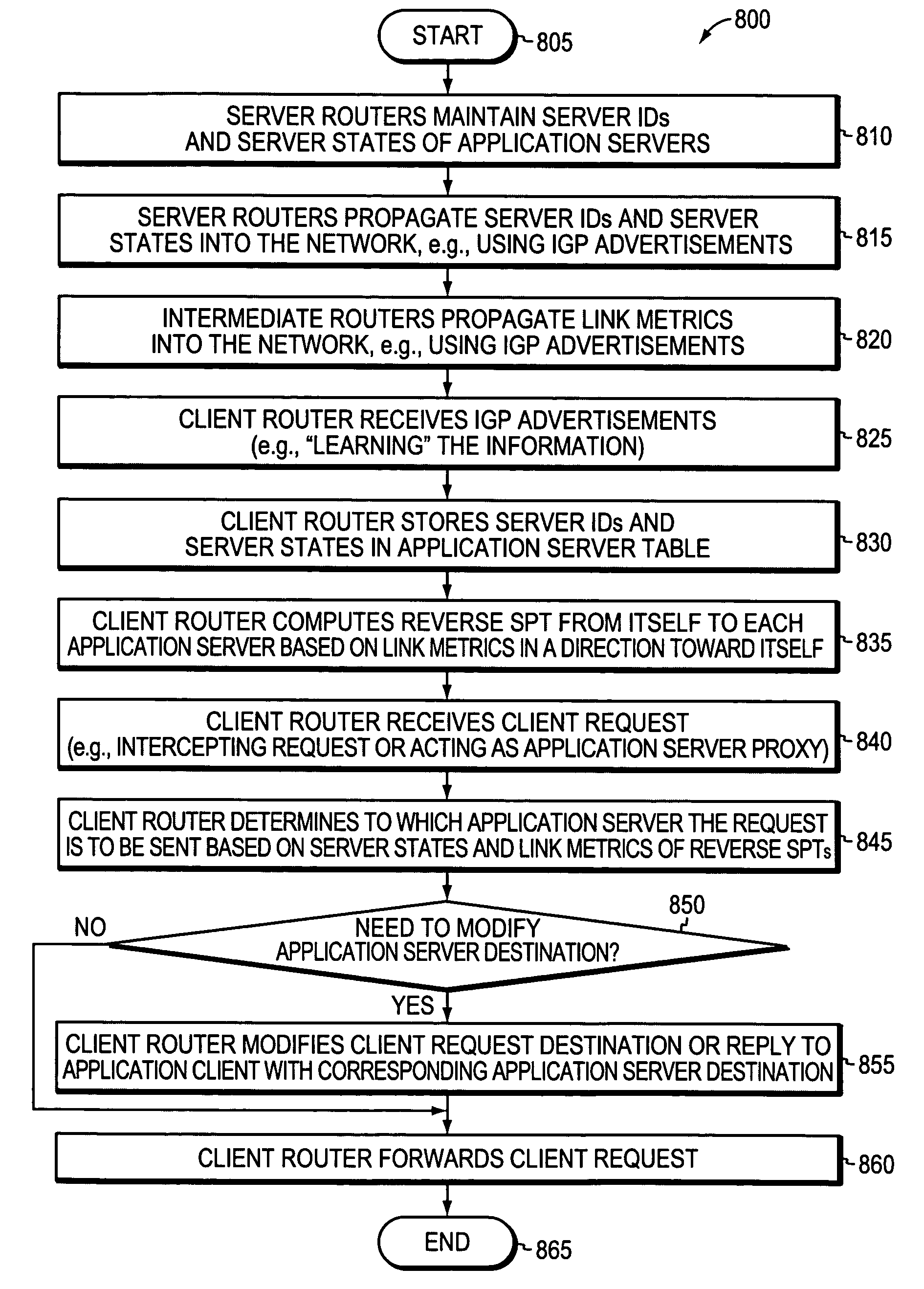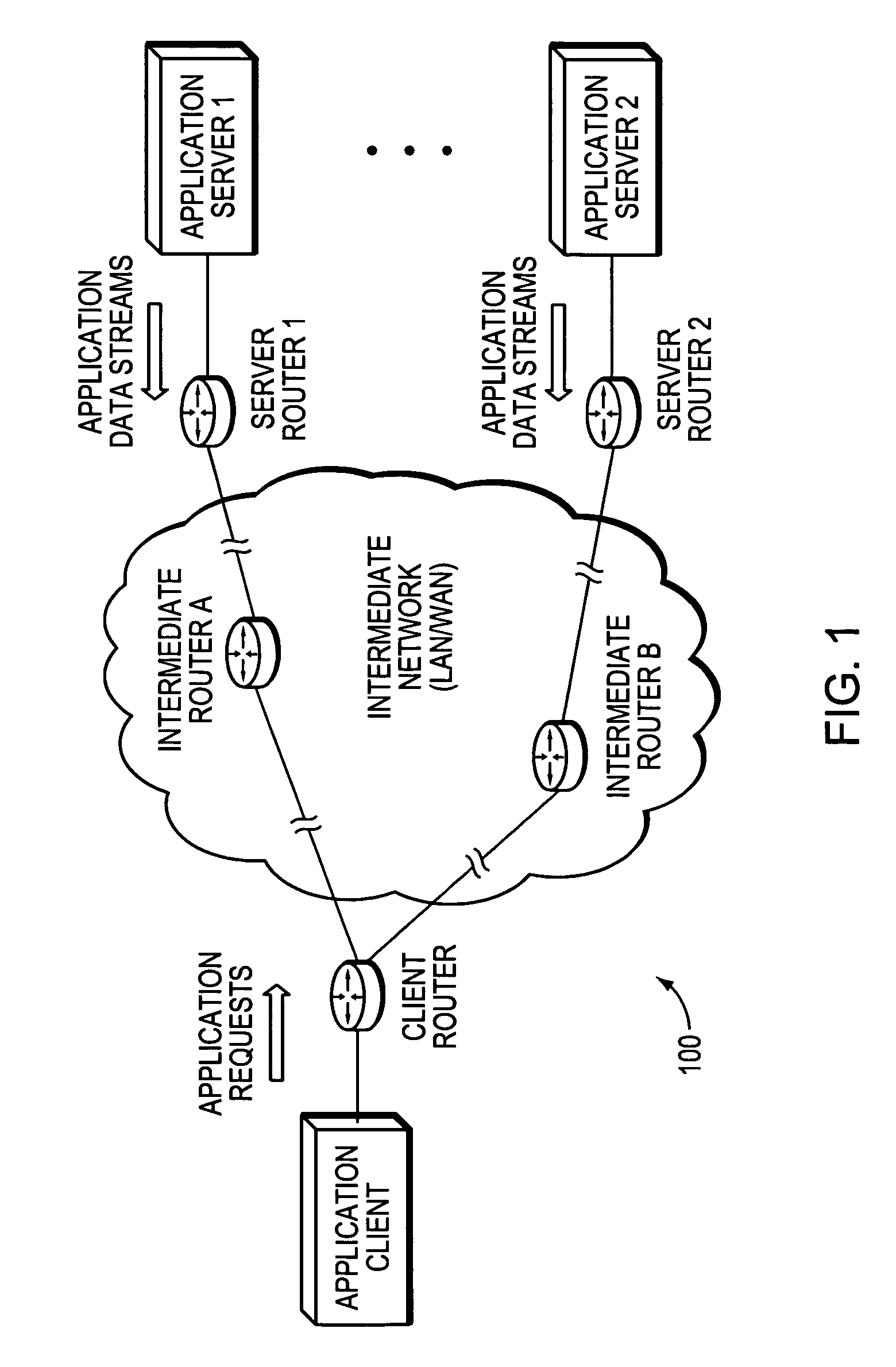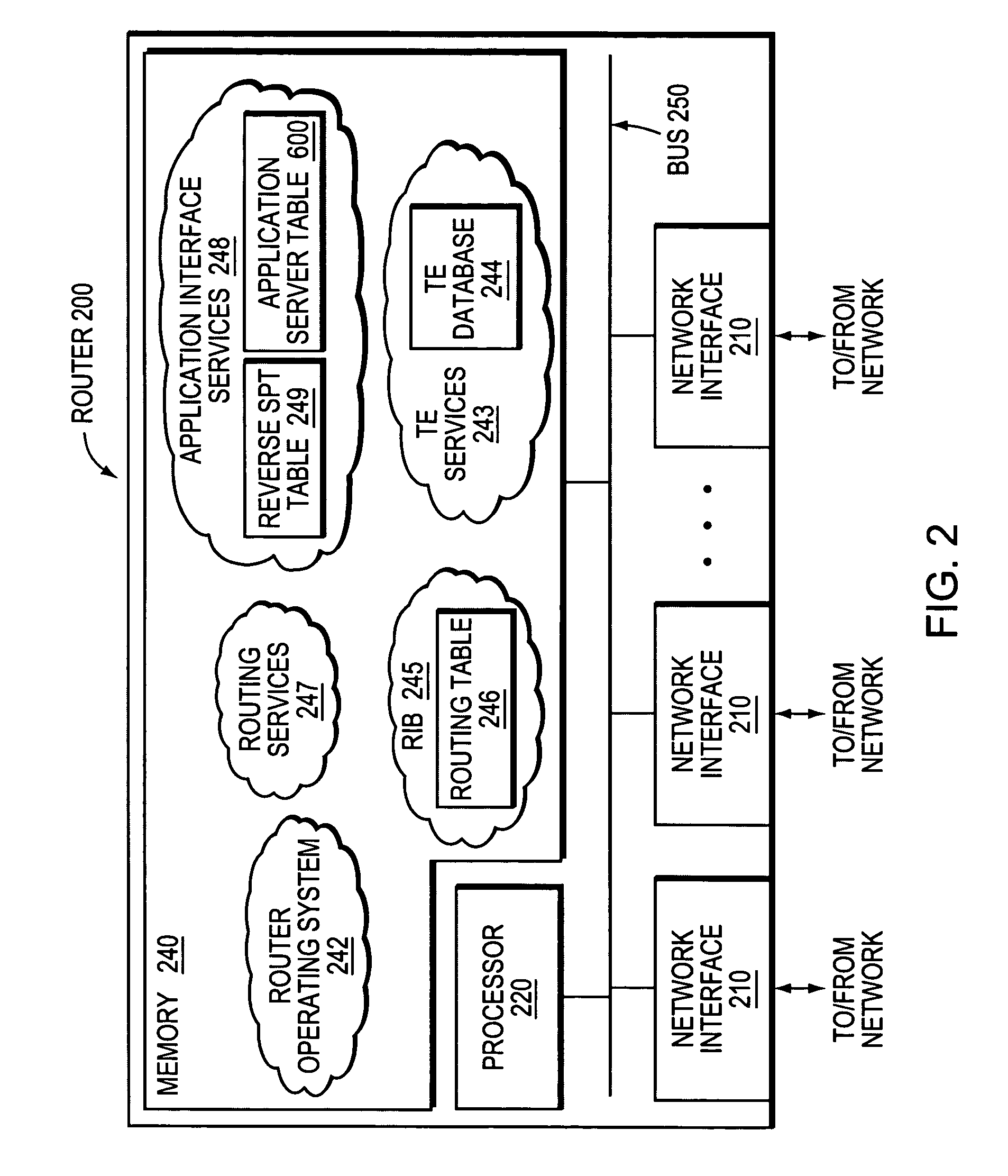Technique for optimized routing of data streams on an IP backbone in a computer network
a computer network and data stream technology, applied in the field of computer networks, can solve the problems of inconvenient inability to communicate between the routing layer and the application layer to provide efficient load balancing, and inability to optimize the routing of application data streams. to achieve the effect of optimizing the routing of application data streams
- Summary
- Abstract
- Description
- Claims
- Application Information
AI Technical Summary
Benefits of technology
Problems solved by technology
Method used
Image
Examples
Embodiment Construction
[0034]FIG. 1 is a schematic block diagram of an exemplary computer network 100 that may be advantageously used with the present invention. The network 100 comprises a plurality of interconnected network nodes, such as an application client and two or more application servers (e.g., application servers 1 and 2). Illustratively, the application client may be interconnected to a client router, and the application servers may be interconnected to a corresponding server router (e.g., server routers 1 and 2, respectively). The client router and server routers may be interconnected by an intermediate network of one or more intermediate nodes (e.g., intermediate routers A and B), such as, e.g., over wide area network (WAN) links (or local area network, “LAN” links, point-to-point links, wireless LANs, etc.), to form the network 100. The interconnected network nodes may exchange data packets according to predefined sets of network communication protocols, such as, e.g., the Transmission Cont...
PUM
 Login to View More
Login to View More Abstract
Description
Claims
Application Information
 Login to View More
Login to View More - R&D
- Intellectual Property
- Life Sciences
- Materials
- Tech Scout
- Unparalleled Data Quality
- Higher Quality Content
- 60% Fewer Hallucinations
Browse by: Latest US Patents, China's latest patents, Technical Efficacy Thesaurus, Application Domain, Technology Topic, Popular Technical Reports.
© 2025 PatSnap. All rights reserved.Legal|Privacy policy|Modern Slavery Act Transparency Statement|Sitemap|About US| Contact US: help@patsnap.com



